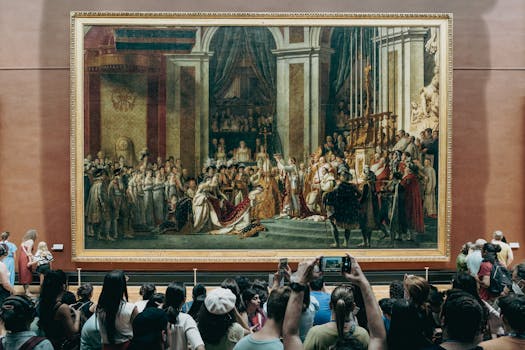Napoleon Bonaparte: Military Genius and Emperor

Napoleon Bonaparte, a name synonymous with military strategy and leadership, remains one of history's most studied figures. Born in Corsica in 1769, Napoleon rose from modest beginnings to become Emperor of France, leaving an indelible mark on European history. His exceptional skills as a commander and his ambitious reforms transformed the French nation and influenced global politics.
Early Life and Military Career
Napoleon's journey began in Ajaccio, Corsica, where he was born into a relatively modest family. His early education at military schools in mainland France set the stage for his future career. At the age of 16, he became a second lieutenant in the artillery, quickly distinguishing himself through his intelligence and leadership abilities.
During the French Revolution, Napoleon seized opportunities that propelled him to prominence. His first significant victory came at the Siege of Toulon in 1793, where his tactical acumen earned him a promotion to brigadier general. By 1796, he commanded the Army of Italy, achieving remarkable success against Austrian forces.
Rise to Power
Napoleon's ascent to power was marked by both military and political maneuvers. In 1799, he orchestrated a coup d'état, establishing himself as First Consul of France. This period saw significant reforms, including the creation of the Napoleonic Code, which streamlined French law and influenced legal systems worldwide.
In 1804, Napoleon crowned himself Emperor of the French, solidifying his control over the nation. His reign was characterized by extensive military campaigns across Europe, known collectively as the Napoleonic Wars. These campaigns showcased his brilliance in strategy but also led to widespread conflict.
Military Tactics and Innovations
Napoleon's military genius is evident in his innovative tactics and strategies that revolutionized warfare. He excelled in rapid maneuvering, often outflanking and surprising enemy forces. His use of mass conscription allowed him to field large armies capable of sustained campaigns.
- Corps System: Napoleon organized his army into self-sufficient corps capable of operating independently but supporting each other when needed.
- Artillery Integration: He emphasized the use of artillery as a decisive force on the battlefield.
- Logistics: Efficient supply lines ensured that his troops were well-equipped and mobile.
The Napoleonic Code
The Napoleonic Code, established in 1804, remains one of Napoleon's most enduring legacies. This civil code reformed French legal principles by emphasizing equality before the law, secular authority over religious institutions, and protection of property rights. It served as a model for legal systems in many countries beyond France.
The code abolished feudal privileges and standardized laws across the nation. Its influence extended to Latin America and parts of Europe, shaping modern legal frameworks.
Exile and Legacy
Despite his numerous successes, Napoleon's relentless ambition eventually led to his downfall. The disastrous Russian campaign in 1812 weakened his forces significantly. After a series of defeats by a coalition of European powers, he was forced to abdicate in 1814 and exiled to Elba.
Napoleon escaped from Elba in 1815 but was defeated at the Battle of Waterloo shortly thereafter. He spent his final years in exile on Saint Helena, where he died in 1821.
| Key Battles | Date | Outcome |
|---|---|---|
| Austerlitz | 1805 | Decisive French Victory |
| Trafalgar | 1805 | British Victory |
| Moscow Campaign | 1812 | French Defeat |
| Waterloo | 1815 | Decisive Allied Victory |
The Enduring Fascination with Napoleon Bonaparte
The fascination with Napoleon continues to this day. One insightful TED Talk by historian Andrew Roberts explores Napoleon’s complex character and enduring legacy (ted.com). Roberts delves into how Napoleon’s visionary ideas still resonate in contemporary politics and military strategies.
This TED Talk underscores how Napoleon's influence extends beyond his lifetime. His administrative reforms laid foundations for modern statecraft while his military strategies are still studied in military academies around the world.
Napoleon Bonaparte's life is a testament to extraordinary ambition and unparalleled military prowess. From humble beginnings on Corsica to ruling an empire that spanned much of Europe, his impact on history is undeniable. His innovative strategies and reforms have left lasting legacies that continue to shape our world today.
The story of Napoleon Bonaparte is not just about battles won or lost but about transformative ideas that influenced modern governance and law. As we reflect on his life and achievements through various lenses like TED Talks, we gain deeper insights into why he remains a figure of enduring fascination.